The first time Taiko drumming took Tommy Smith’s breath away, it wasn’t in a concert hall or in the practice’s native Japan – it was through his TV screen.
A 2009 programme depicting the colourful, choreographed ensemble drumming with giant drums, stopped jazz musician Tommy in his tracks.
Hooked immediately, the acclaimed saxophonist and Scottish National Jazz Orchestra founder was determined to find out all he could about the ancient musical practice.
Taiko has its roots in Japanese folklore, and the drums are thought to have been used as part of village ceremonies, harvest festivals and rain rituals since the 6th century.
With Taiko being such a niche type of music, Tommy didn’t expect to get very far in his search for real-life experience of it.
“Where, I thought, apart from Japan, am I going to find musicians who pursue the art of taiko drumming?” recalls Tommy, 56.
But the answer was much closer to home than he could have dreamed.
Just eight miles from Tommy’s home was the South Lanarkshire dojo (rehearsal space) for Mugenkyo Taiko Drummers, the UK’s original taiko performance group.
It was here that he met Mugenkyo founder Neil Mackie, and a most unusual collaboration – combining the millennia-spanning Taiko with the cutting edge of jazz – was born.
Now the Mugenkyo Taiko Drummers and the Scottish National Jazz Orchestra are gearing up to perform their full-force production, World of the Gods, at Perth Festival of the Arts tonight.
But the story of their eventual meeting with Perth audiences starts much further back than Tommy’s televisual love-at-first-sound.
‘I had to practice on a cardboard drum’
Two years before the Scottish National Jazz Orchestra even existed, there was the Mugenkyo dojo; and long before Mugenkyo, there was Neil, a man from Bristol who played the kit drums, and found himself in Japan 30 years ago.
“It’s my 30th anniversary of playing Taiko,” says Neil proudly. ” And it’s been quite a journey!”
“I went to Japan originally simply as a tourist,” he explains.
“A fateful meeting introduced me to Taiko and to Kurumaya Sensei. It was as if a thunderbolt had hit me!
“When I met him he said he would teach me, but only if I could commit 100%.”
And commit Neil did. Inspired, he dropped everything and obtained a cultural visa from the Japanese government specifically to study Taiko.
His next two years passed in a Karate Kid-style training montage as he studied at the Daianzenji Zen Buddhist temple in Fukui – with ghosts as his first audience.
“The training was hard,” Neil admits. “I had to practice on my cardboard drum – I wasn’t allowed a real one until I could prove I’d mastered the techniques – among the gravestones.
“Evidently Japanese spirits like Taiko!”
Taiko troupe warmed up crowd for Beyonce
After his intensive training, Neil returned home and then moved to South Lanarkshire and set up Mugenkyo, the UK’s first centre for Taiko drumming.
And just this year, the ensemble played in a line-up which included global superstar Beyonce at the opulent Atlantis The Royal hotel in Dubai, rubbing shoulders with big-name guests such as Kendall Jenner and Liam Payne.
But thirty years from when he first picked up his ‘bachi’ (Taiko drumming sticks), Neil’s not blinded by the glamour of his success.
For him, Taiko is a craft he’ll be learning all his life.
“Taiko is a very ancient form of drumming, however the Taiko drumming we know today – the ensemble drumming – is not that old,” he reveals.
“It’s only been 70-80 years since Taiko has been made popular as an ensemble form of drumming. Before that, Taiko was used in Noh and Kabuki traditional theatre, and at ceremonies in temples and shrines.
“In fact, in the Hokuriku area, where I used to live, Taiko was played at the traditional strip shows!”
Thanks to a Taiko “boom” in the 1950s, the practice became popular outside of Japan, but it was Neil and Mugenkyo which popularised it in the UK, bringing a European spin to the Eastern art form.
And it was here in Scotland, seven years ago, that Mugenkyo member and self-professed “Taiko Cinderella” Edina Nagy found the beat of her own drum.
‘I’m like a Taiko Cinderella’
Hailing from Hungary, Edina moved to Edinburgh aged 20 and ended up putting down roots. It was a nine years later, while strolling through the city, that she happened upon Taiko.
“I saw a banner outside of St. John’s Church in Edinburgh which said in bold letters ‘Learn Taiko’,” she recalls.
“I didn’t know what it was, so I looked it up, and saw a video of a large ensemble performing. It was very energetic, happy and joyous, the energy really captivated me, so I contacted Mugenkyo and started the course.
“Playing was exactly as it appeared in the video – energetic and joyous. You forget about everything and feel ‘in the moment’.”
“I was completely hooked, and wanted to enter this world. I have a lot of creative skills such as photography, and started working on projects for the organisation, such as posters for the tours, costumes, and I made a CD cover too.
“And so I landed myself in a full-time job, like a Taiko Cinderella!”
Funky footwear helps drummers stay safe
For Edina, Taiko is a combination of body and spirit, with the drums themselves containing a special kind of magic.
“The drum is made from a single trunk of wood, taking 4-6 years to carve out and stretch cowhide over it,” she explains.
“It takes great skill to make these drums, and each one has its own unique sound. There is a spirit inside each drum.”
When I see her perform alongside Neil and Tommy at the launch of Perth Festival of the Arts, she is wearing a complex black and red garment, split around the legs and cinched at the waist by a huge leather belt, topped with a matching headband.
But the most fascinating part of her costume is her shoes. They have a hoof-life split between the big toe and rest of the shoe.
“For both performance and practice we wear special footwear called ‘tabi’, for the best flexibility and best grip,” she explains.
“You need to be grounded to play Taiko.”
From Irish pubs to bovine audiences
Indeed, the ferocious pace and force of Taiko playing makes it more than just musicianship; it’s also an intensive workout.
“It is very highly physical activity, it requires stamina and endurance,” Edina says.
“As with any other sports you have to build it up little by little. We use drills so that we can learn to play effortlessly. We need to be careful when we’re playing and understand our own bodies.”
Asked if she’s ever hurt herself on stage, Edina replies: “Well I’ve never injured myself playing, apart from little things like hitting yourself with the bachi!
“But I did fall off the stage at The Fringe. I broke my foot, then go back on stage and continued playing until the end of the show!”
It’s that kind of passion and determination which Taiko seems to inspire in those that witness it.
Neil recalls playing in a pub in Galway, Ireland, where “the people were crammed in and we were right in the corner, on a very small stage”.
“We played a piece called Matsuri, which means ‘festival’,” he says, “and the audience started dancing.
“At the end of the set, they asked us to play it again. They loved it so much, we just drummed all night – it was amazing!”
Even animals seem to love Taiko, as Edina recalls a particularly heavy-footed audience.
“We were performing for somebody’s birthday in Cumbria, playing barefoot outside in a field,” she laughs.
“During the set, a herd of about 30 cows started running down the hill to watch us play. They really loved it!”
Worlds of Taiko and jazz to collide in Perth
And for the people of Perth, the upcoming World of the Gods performance promises all “drama, awe, beauty, and power” of Taiko as well as the fun and improvisation of jazz, according to sax-master Tommy.
Inspired by Japanese Shinto gods, the performance starts out following the Goddess of the Dawn, ‘Uzume’, and travels through the realms of Earth, Wind Fire, and Storms. Tonight’s performance will be the first since the original tour in 2010.
“It’s a big challenge for us to be performing with the jazz orchestra,” admits Neil.
“We have to change the way we think, change the way we rehearse. But we’ve been relishing it.
“I hope that the audiences can enjoy all of it. It’s something that’s never been done before, to my knowledge – jazz and Taiko.
“So it’s an amazing opportunity to see two worlds collide and come together as one.”
The World of the Gods, directed by Tommy Smith, will be performed by Mugenkyo Taiko Drummers and the Scottish National Jazz Orchestra tonight at Perth Concert Hall as part of the Perth Festival of the Arts programme. For more information or to book tickets, please see the festival’s website.
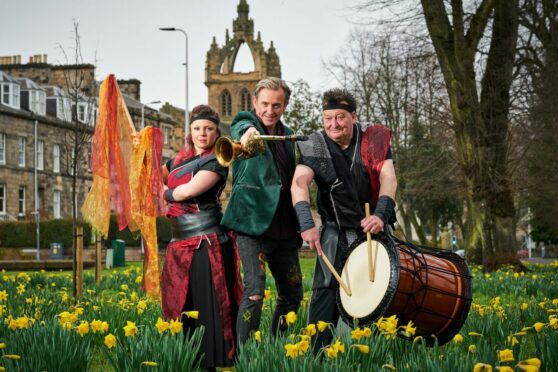





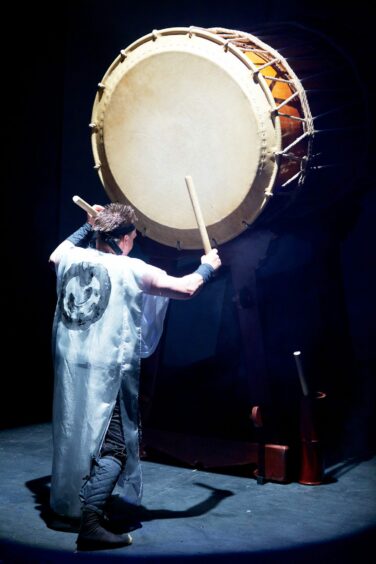
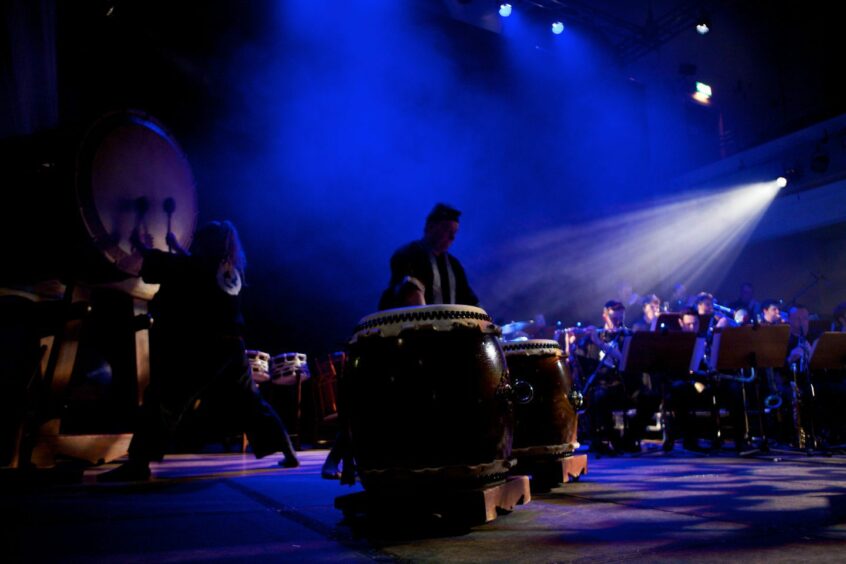

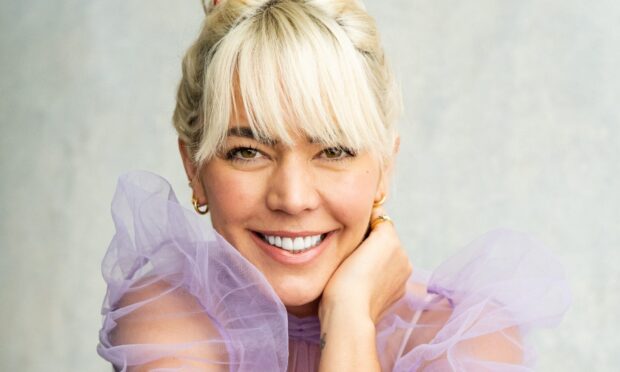
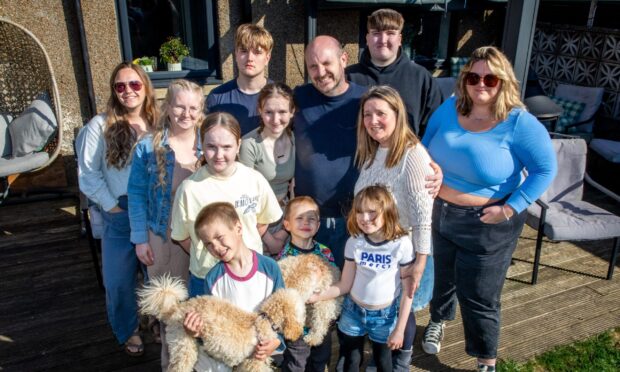
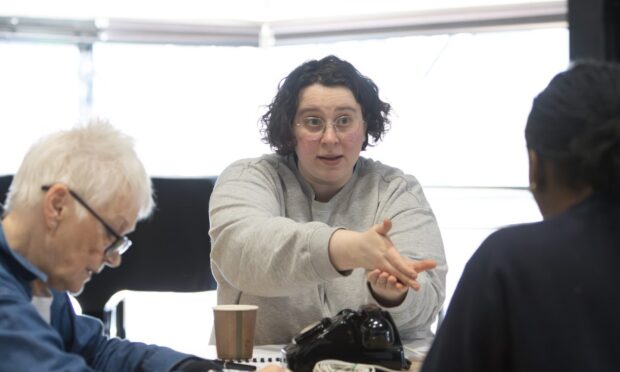


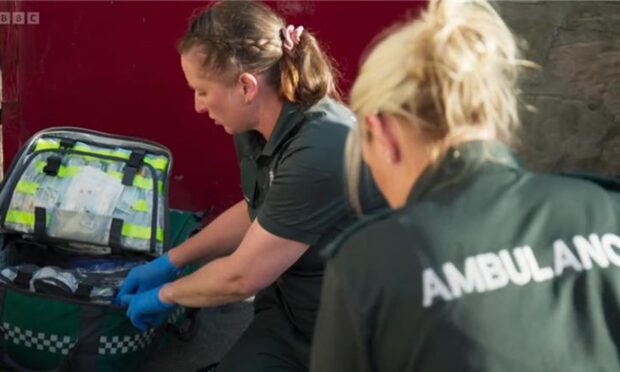
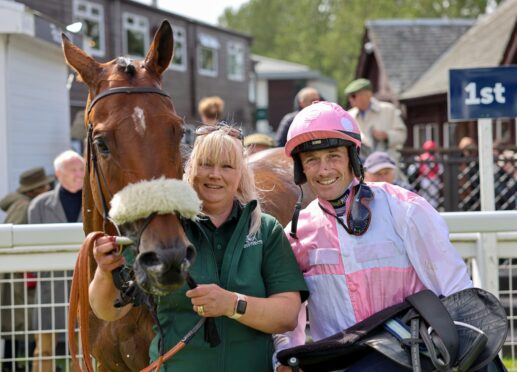
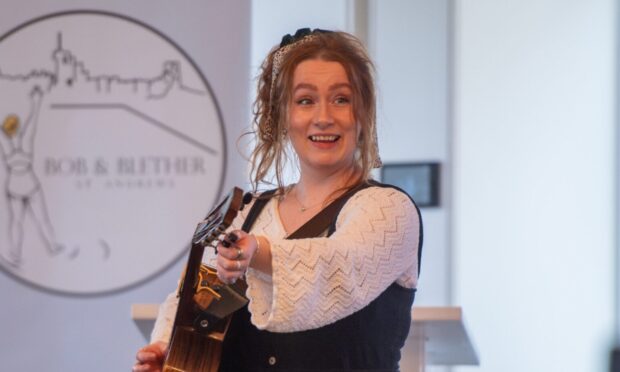
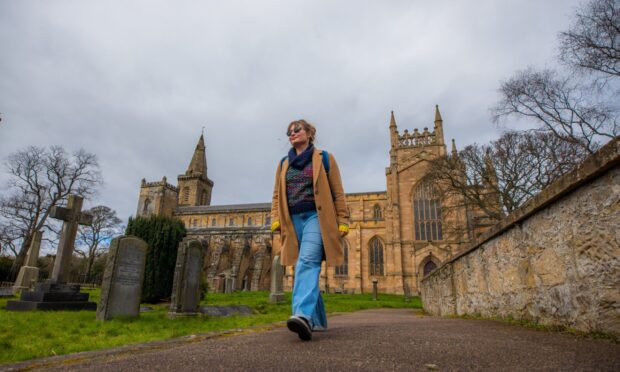

Conversation